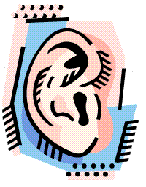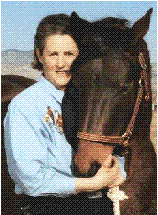
THESE WORKSHOPS ARE FREE AND OPEN TO THE PUBLIC,
LET US KNOW IF YOU NEED ACCOMMODATIONS WHEN REGISTERING.
TO SCHEDULE A WORKSHOP IN YOUR AREA
PLEASE CALL: 1-800-759-4776
* Are workshops for Foster Parents and DSS Staff
5/07/2009
10:00 am - 12:00 pm
Individualized Education Program (IEP) Workshop
Clarendon County DDSN
312 Pine Street
Manning, SC 29102
Gayle Munn, PRO-Parents of SC
Region 1, Education Coordinator
For More Information or To Register Call:
1-800-759-4776 or (803) 772-5688
5/12/2009
7:00 pm - 9:00 pm
Positive Behavioral Interventions (PBI) Workshop
Union DDSN
226 South Gadberry Street
Union, SC 29379
Susan Bruce, PRO-Parents of SC
Region 3, Education Coordinator
For More Information or To Register Call:
1-800-759-4776 or (803) 772-5688
5/13/2009
12:00 pm - 2:00 pm
Transitioning Into Special Education Workshop
Sponsored by: Marlboro County DDSN
(This Workshop is Presented Via the Internet and Conference Call)
Call PRO-Parents of SC to Register
** E-Mail Address and Phone Required **
Tanya M. Inabinet, PRO-Parents of SC
Region 2, Education Coordinator
For More Information or To Register Call:
1-800-759-4776 or (803) 772-5688
5/16/2009
10:00 am - 12:00 pm
Transitioning Into Special Education Workshop
Sponsored By: Edgefield DDSN / Burton Center of Greenwood
Edgefield County Library
100 Court House Square
Edgefield, SC 29824
Susan Bruce, PRO-Parents of SC
Region 3, Education Coordinator
For More Information or To Register Call:
1-800-759-4776 or (803) 772-5688
5/18/2009
5:00 pm - 7:00 pm
*Is Your Child a Target of Bullying? Workshop
Marlboro County DSS Office
713 Parsonage Street
Bennettsville, SC
Kim Preston, PRO-Parents of SC
South Carolina Special Kids Project
For More Information or To Register Call:
1-866-863-1512
5/19/2009
11:00 am - 1:00 pm
*Early Intervention Workshop
Charleston Air Force Base
Building 500
Conference Room
Charleston, SC
Kim Preston, PRO-Parents of SC
South Carolina Special Kids Project
For More Information or To Register Call:
1-866-863-1512
5/20/2009
6:00 pm - 8:00 pm
Transitioning Into Special Education Workshop
(This Workshop is Presented Via the Internet and Conference Call)
Call PRO-Parents of SC to Register
** E-Mail Address and Phone Required **
Tanya M. Inabinet, PRO-Parents of SC
Region 2, Education Coordinator
For More Information or To Register Call:
1-800-759-4776 or (803) 772-5688
5/22/2009
11:00 am - 3:00 pm
Transitioning Out of Special Education Workshop
Lee County DDSN
Gibbs Training Center
307 Chappelle Drive
Bishopville, SC 29210
Tanya M. Inabinet, PRO-Parents of SC
Region 2, Education Coordinator
For More Information or To Register Call:
1-800-759-4776 or (803) 772-5688
5/27/2009
10:00 am - 12:00 pm
Transitioning Into Special Education Workshop
Dorchester County DDSN
2717 West 5th North Street
Summerville, SC
Gayle Munn, PRO-Parents of SC
Region 1, Education Coordinator
For More Information or To Register Call:
1-800-759-4776 or (803) 772-5688
5/28/2009
9:00 am - 11:00 am
Is Your Child a Target of Bullying? Workshop
Beaufort Air Station
Building 807
Beaufort, SC
Gayle Munn, PRO-Parents of SC
Region 1, Education Coordinator
For More Information or To Register Call:
1-800-759-4776 or (803) 772-5688
5/30/2009
9:00 am - 3:00 pm
*Linking Families with Special Education Workshop
Hope Center
901 North Main Street
Sumter, SC
Kim Preston, PRO-Parents of SC
South Carolina Special Kids Project
For More Information or To Register Call:
1-866-863-1512
To view entire article, please click on link above.












